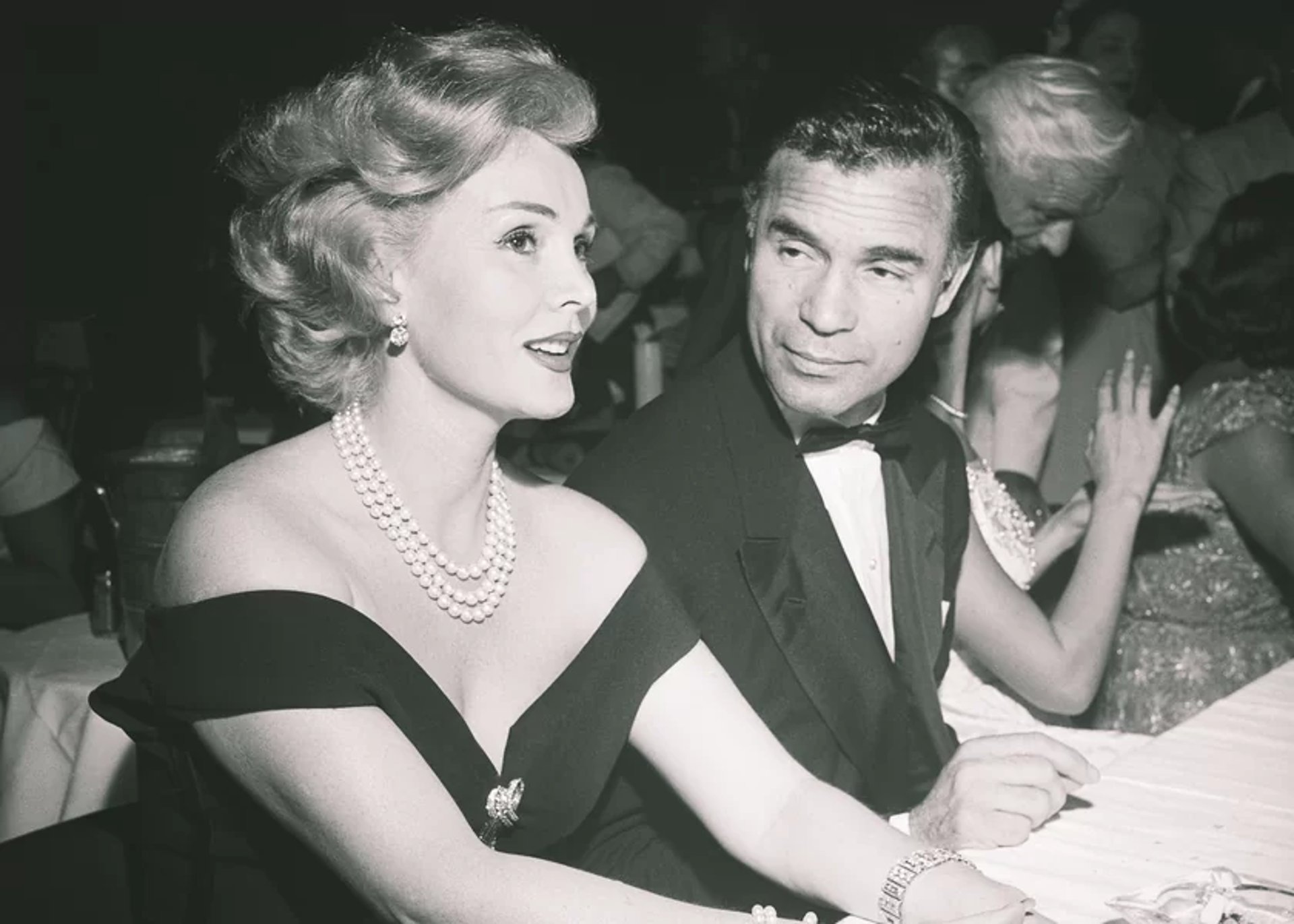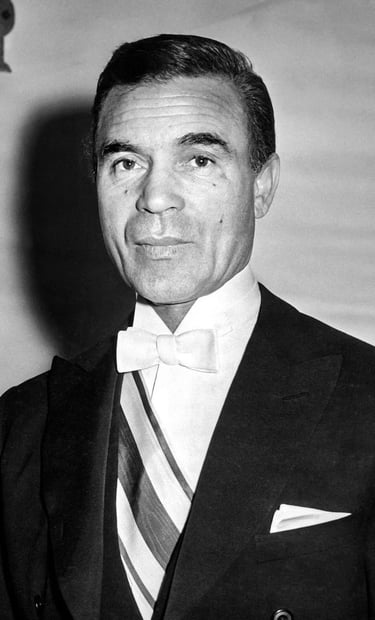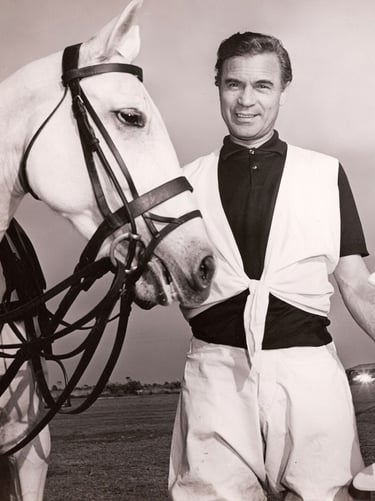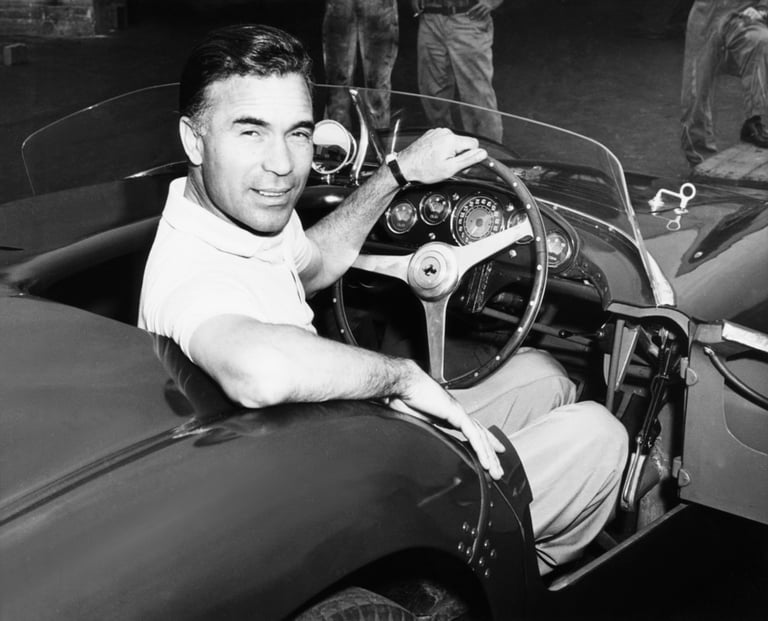
PORFIRIO RUBIROSA
Why the World Needs Him
Raymond K. Ndokwo
7/30/20253 min read


PORFIRIO RUBIROSA: WHY THE WORLD NEEDS HIM
An Enduring Inspiration for Ray Boulé Magazine
n a society increasingly defined by speed, uniformity, and digital posturing, the ghost of Porfirio Rubirosa moves through the hallways of our cultural memory like a whisper from a more graceful era. His name conjures up visions of champagne breakfasts in Saint-Tropez, raucous polo matches beneath Caribbean skies, and hushed discussions over cigars in Parisian nightclubs. However, reducing Rubirosa to the stale tabloid image of a jet-setting Casanova misses the spirit of the man and more importantly, ignores why he is more important than ever.
At Ray Boulé Magazine, we believe Rubirosa was more than just a style icon; he was also a presence maker. And in that uncommon quality we discover the pulsing core of the debonair ideal we espouse.
Porfirio Rubirosa in white-tie tails decorated by a sash
Born in 1909 in the Dominican Republic, Porfirio Rubirosa was a diplomat, polo player, race car driver, soldier, and man of the world. His marriages to heiresses like Doris Duke and Barbara Hutton, two of the wealthiest women of their era, are only footnotes in a far greater story. Rubirosa lived not in pursuit of wealth, but in a natural orbit around it, moving through the circles of kings, presidents, and movie stars with an ease that was never learned, only inherited. He was fluent in multiple languages, courteous to a fault, and always perfectly tailored. His suits, shirts, and ties (crafted by the great Parisian houses like Charvet) became his armour, not of ego, but of etiquette. To be dressed well, in Rubirosa’s world, was not vanity; it was respect, for himself and for those he encountered.
This ethos resonates deeply with the editorial soul of Ray Boulé. We do not lionise excess. We celebrate discipline disguised as charm, precision masked by nonchalance. Rubirosa was not perfect but he was poised. And that, in this distracted age, is revolutionary.


What the World Has Lost and Needs Again
Rubirosa’s most powerful legacy is not found in the archives of celebrity or wealth, but in the art of living well. He approached life like a connoisseur of conversation, of culture, of craftsmanship. He read, he fenced, he played polo, not as a weekend pastime but as a lifestyle that required grit, grace, and unflinching stamina. He danced with the same intensity with which he negotiated diplomacy. In an era obsessed with content, Rubirosa reminds us of the context. His life had rhythm, not rush. He lingered over lunch, not out of idleness, but out of reverence for ritual.The modern man, strangled by algorithmic expectations and performative masculinity, stands to learn something essential from Rubirosa: that freedom lies in elegance, not excess; in mastery, not mere visibility.
The Rubirosa Code at Ray Boulé
Ray Boulé Magazine is not a nostalgic retreat, but a manifesto for the modern gentleman. We do not seek to recreate Rubirosa’s lifestyle—nor could we, nor should we. Instead, we invoke his spirit as a North Star for our readers: men who wish to refine their presence in the world, who believe dressing well is a form of diplomacy, and who understand that a true gentleman is equal parts tact and daring.
To live Rubirosa’s code is to:
Cultivate a broad curiosity—be as comfortable quoting Tolstoy as you are discussing tailoring.
Prioritise manners over status; polish over price tag.
Seek excellence in detail: in the fit of your blazer, the brush of your handwriting, the tone of your voice.
Embrace risk not for recklessness, but for the sport of life itself.
It is to choose the better wine, the longer route, the slower suit fitting. It is to hold the door open without needing to be thanked. It is to listen deeply and speak less, not for mystery, but for meaning.
Rubirosa’s Bentley crashed in 1965, ending his life at just 56 but his myth did not die. Because what he symbolised—poise, polish, passion—remains the ultimate rebellion in a world gone casual. At Ray Boulé Magazine, we don’t idolise men like Rubirosa. We study them, not for imitation but for interpretation. We extract the essence from their lives to distill a message for the modern man: that elegance, lived deliberately, is the highest form of resistance in a forgettable world.
So yes, the world needs Rubirosa. And we, those who still believe in the well-cut suit, the well-chosen word, and the well-lived life, need him most of all.
Editor’s Note:
For those unfamiliar with the legend, we recommend reading “The Last Playboy” by Shawn Levy and seeking out the Parisian cafés or Dominican polo fields where Rubirosa once stood. Not to chase ghosts—but to remember what it means to stand at all.


I
Ray Boule
CELEBRATING THE ESSENCE OF THE DEBONAIR
© 2025. All rights reserved.
By signing up to our newsletter you agree to our Terms and Conditions
